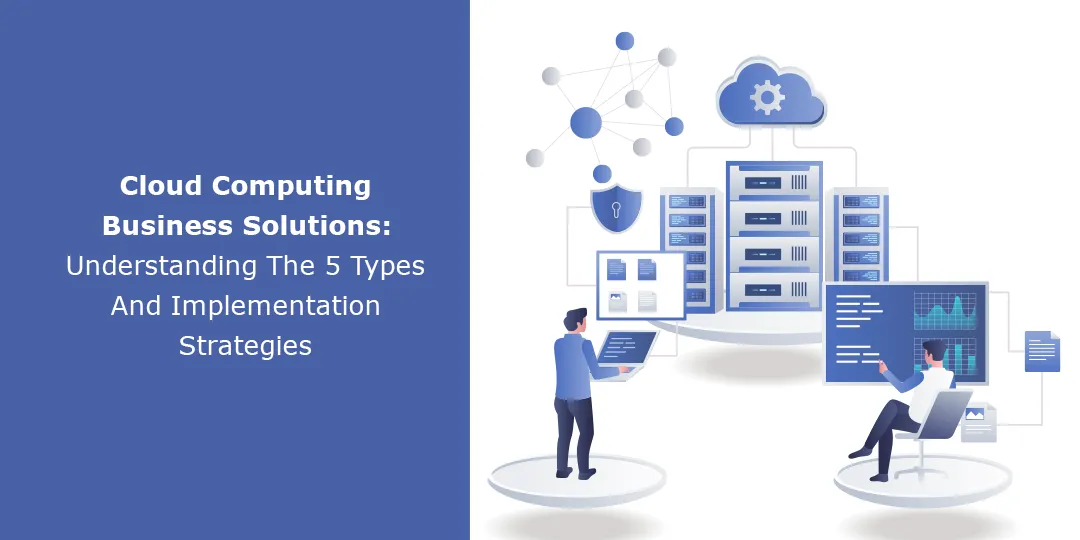
Running a business in the age of technological advancements demands an appreciation of state-of-the-art tech solutions. A business that does not deliberately employ tech-savvy approaches will be affected in two serious ways. First, they will miss out on the benefits and efficiencies of advanced technology. Secondly, they will be unable to compete effectively with their tech-savvy counterparts. One such solution that businesses need to consider is cloud computing.
Cloud computing is a method of computing whereby scalable and elastic IT-enabled capabilities are delivered as a service through Internet technologies. First popularised by Amazon Web Services (AWS) in 2006 as one alternative to physical data storage infrastructure, cloud computing was soon appreciated by tech giants such as Google and Microsoft.
Cloud computing solutions presently take different forms, including software and data infrastructure, multiple data models, serverless computing, business apps, data analytics, et cetera.
The 5 Types of Cloud Computing Business Solution Implementation Strategies
There are many Cloud Services and Solutions you can consider for your business to benefit from tech and compete effectively with your competitors. Here are five cloud computing solutions to consider:
1. Infrastructure as a Service (IaaS)

Infrastructure-as-a-Service (IaaS) is a cloud computing model comprising all the fundamentals. These include server infrastructure, communications, storage, etc. How does IaaS work? It is simple: You lease the cloud and transfer the duties to the service provider. The provider takes care of the maintenance instead of maintaining the IT infrastructure on your own.
IaaS comes with lots of benefits to a business that settles on it. The first is enhanced security. This is because data is located in the provider's data center, where security systems protect it at the physical and software levels. IaaS is also cost-saving since infrastructure maintenance is transferred to the service provider.
It is also easily scalable and appropriate for your company as it grows. Because it provides fewer services than the succeeding models, it gives you more freedom throughout the growth cycle of your business.
2. Platform as a Service (PaaS)

Sometimes, you may want your cloud services to follow predefined settings. This is where PaaS becomes an appropriate cloud computing solution business implementation strategy. With Platform-as-a-Service (PaaS) model, the provider offers a platform for nurturing and deploying applications featuring predefined settings. For instance, a platform can be a backup server, a mail server, a development and testing environment, a database management system, a web server, et cetera.
While PaaS is like IaaS in multiple ways, it doesn’t allow its customers to scale their infrastructure. It grants limited freedom than IaaS but also shuts out the need to handle tasks the provider has already settled on. Nonetheless, it has its advantages.
Some of the benefits of PaaS include being responsible for software updates, fixes, and maintenance. It is also cost-effective as the service provider fully provides the development infrastructure.
3. Software as a Service (SaaS)

This is the most common cloud computing solution we interact with more often. SaaS is a service that delivers a software application to its users and is managed by the cloud service provider. Most practically, SaaS apps are web applications (and could include mobile apps) that users can access using a web browser.
The clientele of the SaaS service model mainly comprises end-users, such as email services and online movie platforms. Social media platforms equally operate on a SaaS model.
SaaS represents the most advanced solution in the cloud services after IaaS and PaaS. It remains an excellent choice if the provided service solves the assigned tasks. This is due to its ready-made solutions that only need to be applied.
4. Cloud Powered Artificial Intelligence (AI) And Machine Learning (ML)
AI & ML is the next big thing in modern service provision for businesses and organizations. Businesses are provided with Artificial intelligence (AI) and machine learning (ML) as cloud services because only a few businesses can marshall resources to build their own AI infrastructure.
When confronted with the need to gather data and training algorithms—requiring substantial computing power and storage space—companies find it more cost-effective to rent it as a service than invest in their own.
Besides businesses hiring cloud-powered AI and ML solutions, cloud computing service providers also heavily deploy these tools for various tasks. Some of these applications include maintaining the wide and distributed networks required to provide storage resources to their customers, controlling the power and cooling infrastructures in data centers, and powering cyber security solutions for enhanced data security. With growth and an increased need to develop more cloud-based
computing solutions by large-scale cloud services providers like Amazon, Google, and Microsoft, businesses should consider how to benefit from cloud-powered AI and ML.
5. Hybrid Cloud Solutions
Depending on the state and the need of a company, there may be a need to amalgamate onsite and cloud-based computer solutions. Hybrid cloud computing solutions come with a combination of on-premises infrastructure and hosted applications.
Hybrid deployments can be a great idea for businesses with an on-premises solution but wish to migrate to cloud-based solutions slowly. With Hybrid cloud solutions options, you can grow your business and move into cloud-based computing solutions as you connect your internal systems.
A good example is using on-premises infrastructure for sensitive work, while a cloud provider hosts less sensitive network resources.
Conclusion
Competition and profit margins in the business world increasingly depend on technology. One such area of tech that businesses must consider is cloud computing.
There are various strategies through which businesses can employ cloud computing solutions to help them remain on the safe side of technology. You can consider your needs and budget to choose a solution that will work best for your business.





